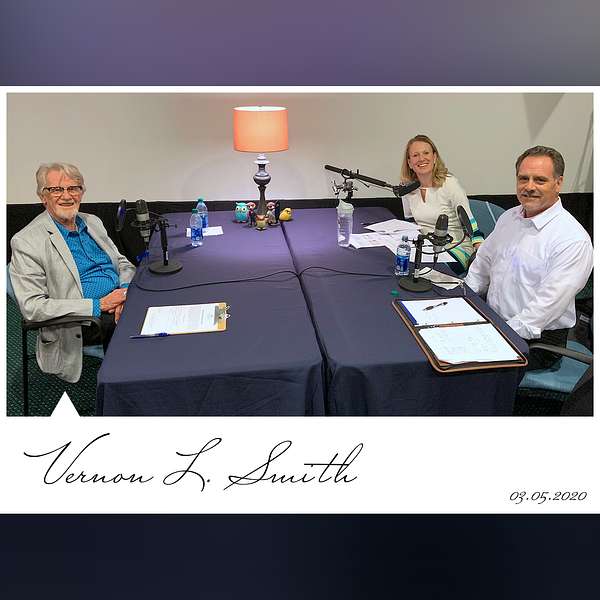
Dean Gropper Presents
Join Dan Gropper, Dean of the Florida Atlantic University College of Business, as he introduces the college's faculty members, research, programming, innovations, and much more. Follow Dean Gropper on Twitter at @FAUbusinessdean.
Dean Gropper Presents
Vernon L. Smith: Economist, Professor, and Nobel Laureate
Vernon L. Smith is the George L. Argyros Chair in Finance and Economics and President, International Foundation for Research in Experimental Economics at Chapman University. Vernon L. Smith, who was awarded the Nobel Prize in Economics in 2002 “for having established laboratory experiments as a tool in empirical economic analysis, especially in the study of alternative market mechanisms,” has held appointments at Purdue University, Stanford University, Brown University, University of Massachusetts, USC, California Institute of Technology, University of Arizona, University of Alaska-Anchorage, George Mason University, and Chapman University. Professor Smith received his bachelor’s degree in Electrical Engineering from California Institute of Technology (1949), his masters in Economics from the University of Kansas (1951), and his Ph.D. in Economics from Harvard (1955). He has authored or co-authored over 290 articles and books on capital theory, finance, natural resource economics, experimental economics, and the housing origins of economic instability, 1920-2014. Professor Smith is a Fellow of the Econometric Society, and the American Association for the Advancement of Science. Purdue University awarded him an Honorary Doctor of Management degree in 1989. Dr. Smith was elected member of the National Academy of Science in 1995. In 1996 he received Cal Tech's Distinguished Alumni Award. He became Kansan of the year (Topeka Gazette) in 2002, received a Distinguished Alumni award from the University of Kansas in 2011 and in 2014 an Honorary Doctor of Science degree. He has served on numerous editorial and editorial advisory boards, and as president of several national economic associations. He has served as a consultant on the liberalization of electric power in Australia and New Zealand, and has participated in numerous private and public discussions of energy privatization and liberalization in the United States and around the world.
Business.fau.edu/podcasts